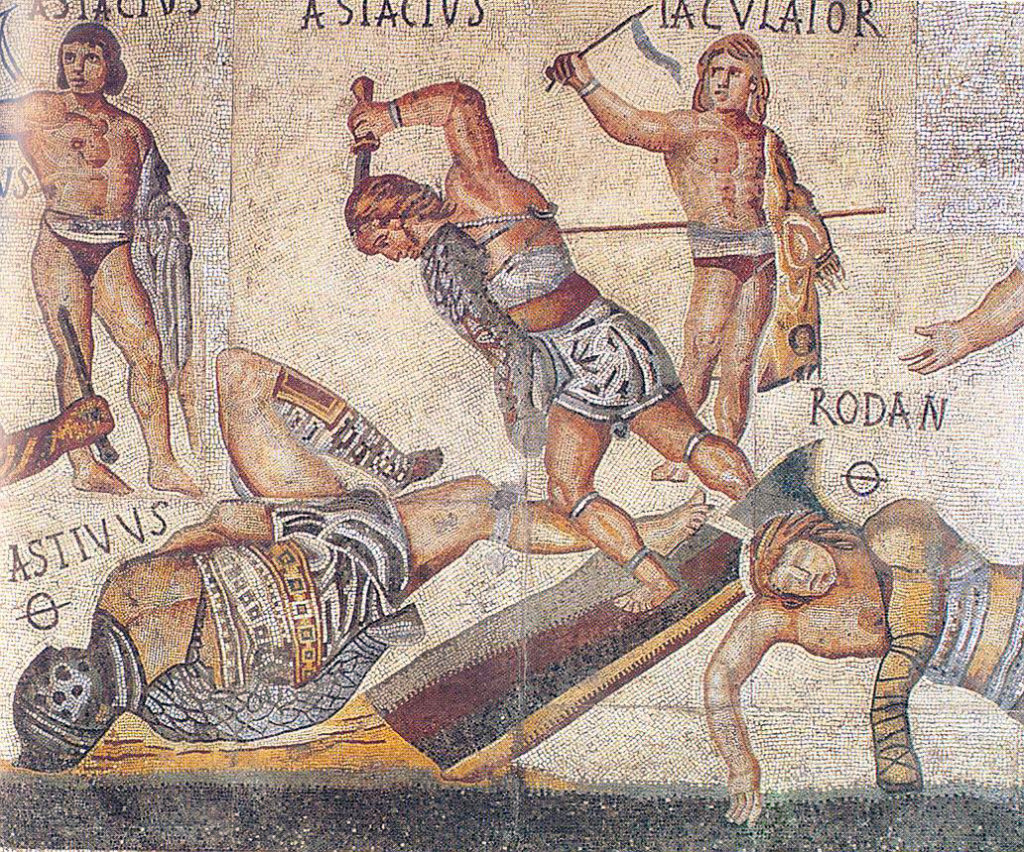Last updated on March 1st, 2023 at 06:27 pm
In Greek mythology, Zeus is a powerful deity of sky and thunder who ruled as the monarch of Mount Olympus and the head of all gods. In his private life, Zeus was quite the casanova, fathering over 100 children with various mortal and divine women.
Among these children were some of Greek mythology’s most famous gods and goddesses, including Athena, Apollo, Artemis, and many others. The stories of their adventures, rivalries, and romances have been passed down through the ages, providing insight into the culture of the ancient Greeks.
We’ll take all day if we talk about all the sons of Zeus. There are too many to name them all. Therefore in this article, you’ll learn about the most well-known sons of Zeus, their backstories, and their famous feats across Greek mythology.
Here we go!
Apollo
Perhaps the most prominent son of Zeus, Apollo, and his twin sister Artemis were born from an extramarital affair between Zeus, the god of gods, and Leto, the Titaness.
Apollo is the Greek god of many things: light, music, poetry, truth, healing, and prophecy, and just like his father, he is featured dominantly in many Greek myths.
The most famous story about Apollo is the one about his birth. Leto was pregnant with Apollo and his twin sister, Artemis. But Zeus’s jealous wife, Hera, made it very difficult for Leto to give birth. She banished Leto and chased her all over the Greek world. Finally, Leto found refuge on the island of Delos and gave birth to the twins.
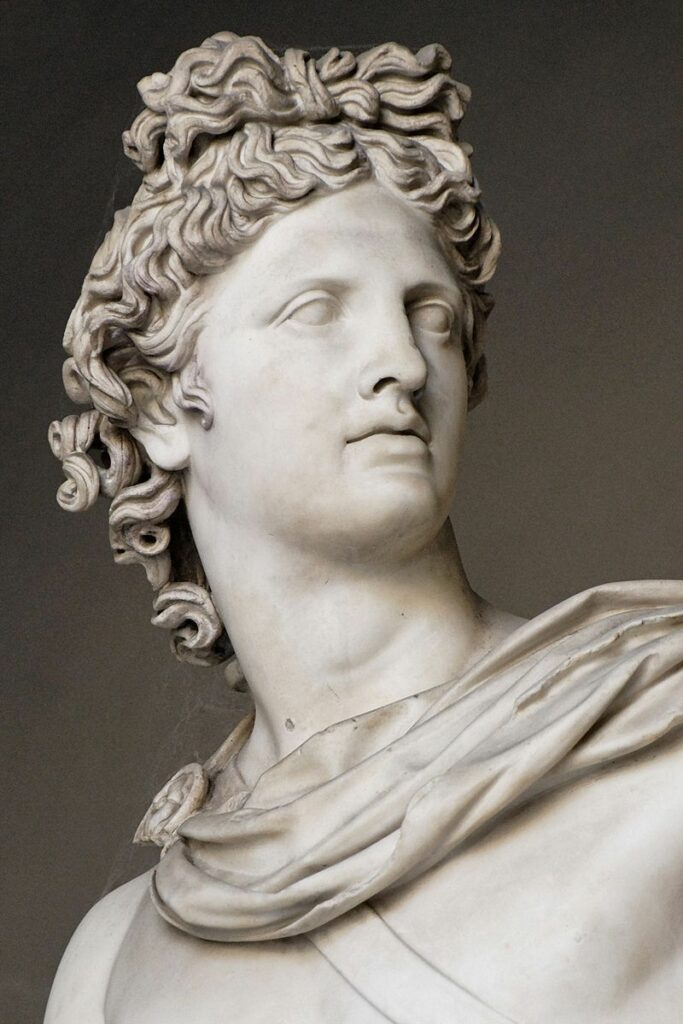
Apollo soon became a famous god, especially among the Muses, the nine daughters of Zeus who were devoted to the arts and sciences. He was known for playing his lyre and singing beautiful songs. He was also a great archer and a champion of justice.
In Greek mythology, he is frequently depicted as handsome, holding a lyre or a bow and arrow. Apollo is linked to various cults, festivals, and ceremonies, including the Pythian Games, the Delphic Games, and the Apollo Festival at Delos.
When it comes to Apollo’s love life, the apple didn’t fall far from the tree. Not unlike his father, Zeus, he is well known for his numerous love affairs that typically end badly with the likes of Daphne, Coronis, and Calliope.
Like many other gods in the Greek pantheon, Apollo had several temples worldwide. However, his most famous temple, which stood out the most due to its uniqueness, was Delphi Temple, located on the slopes of Mount Parnassus.
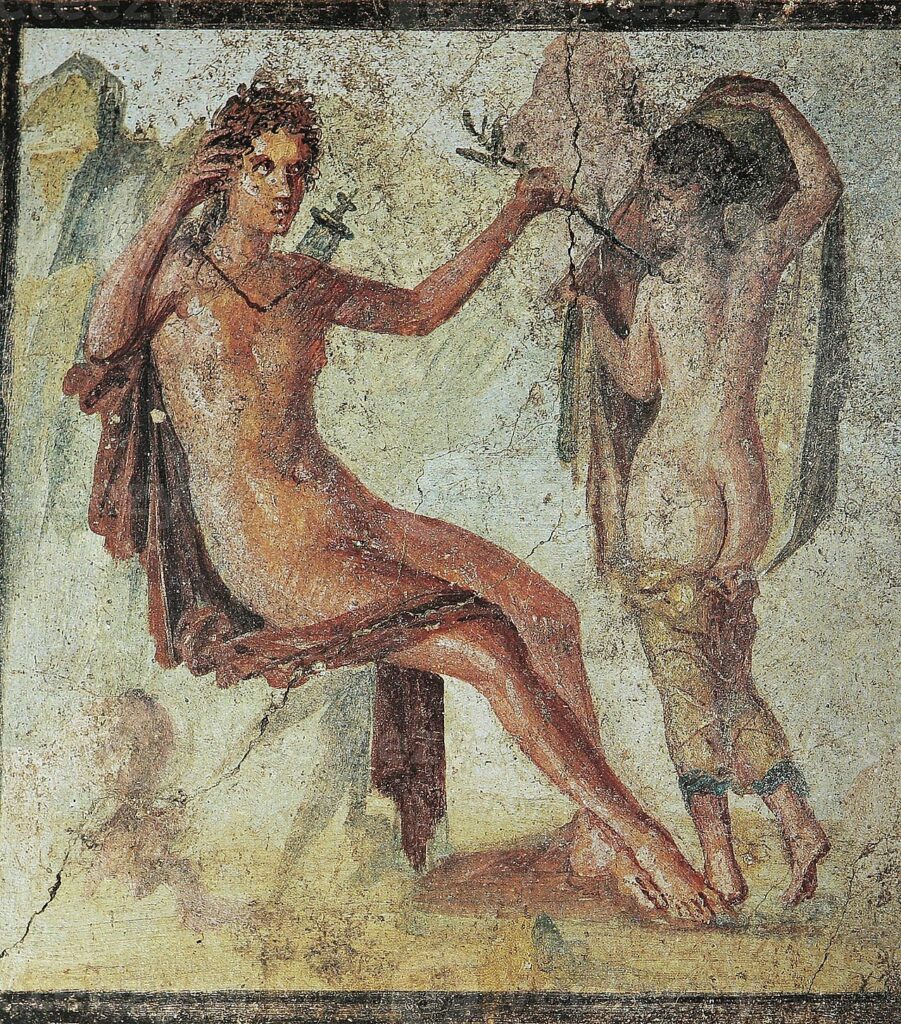
Many Greeks worshiped at this temple, which was considered the center of the world. According to mythology, worshipers would travel to the temple seeking answers and prophecies, which he would readily provide.
Apollo was also associated with the sun, and his chariot was said to drive the sun across the sky. He was sometimes called the “sun god” and was associated with healing, purification, and the passing of knowledge.
Hermes
Hermes is the Greek god of commerce, travel, communication, boundaries, and luck. Unsurprisingly, he is the product of Zeus’ affair with Mai, a daughter of Atlas. He is best known as the messenger of the gods, the carrier of the dead to Hades. But he is also the patron of travelers, merchants, and thieves.
Hermes is known for his cunning and cleverness. He is often depicted with a winged cap, sandals, and staff. He is said to move swiftly and silently, so it’s no surprise that he is the god of travelers.
Hermes is also known for his role in the abduction of Persephone, the daughter of Demeter, the goddess of agriculture and harvest from the underworld. His father, Zeus, sent him to retrieve her from Hades. Hades had tricked Persephone into eating four pomegranate seeds; consequently, she had to stay in the Underworld for four months every year.
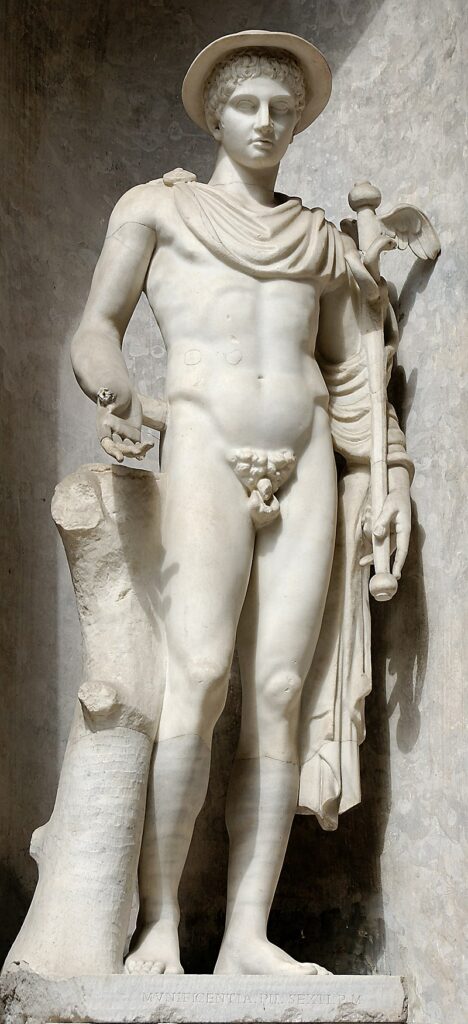
With his cunning and charisma, he was able to trick Hades into allowing Persephone to return to the surface. This particular event, according to mythology, marked the beginning of the cycle of the seasons.
After completing his mission, Hermes could return to Olympus in one piece, where Zeus rewarded him with a golden staff and the title of Messenger of the Gods.
In Greek mythology, Hermes is an important figure of the Greek pantheon and has been featured in many works of art, literature, and music throughout the ages. He is the helpful and mischievous guide, helping both gods and mortals.
Ares
Ares was the ancient Greek god of war. He was a son of Zeus and Hera and a brother to Athena and Apollo. He was also the personification of violence and bloodlust and was often depicted in Greek art as a young man in armor carrying a spear and shield.
Ares was not a popular god among the Greeks, who considered him to be a bringer of war and destruction. He was regarded as a dangerous, uncontrollable force capable of heralding needless death and wanton destruction. Despite this, Ares was still worshiped in some parts of Greece, particularly by warriors.
Ares was often at odds with Athena, the goddess of wisdom and strategy, who preferred to settle disputes with diplomacy rather than war. As a result, Ares was often portrayed as the enemy of the other gods and goddesses and was often pitted against them in battles.
Ares fought against the goddess Aphrodite in one famous story over a beautiful mortal named Adonis. Due to unrequited love, Aphrodite cursed Adonis to strip him of the immortality she bestowed. It worked as Adonis was subsequently mortally injured during one of his many hunts but was eventually saved by Ares before he died.
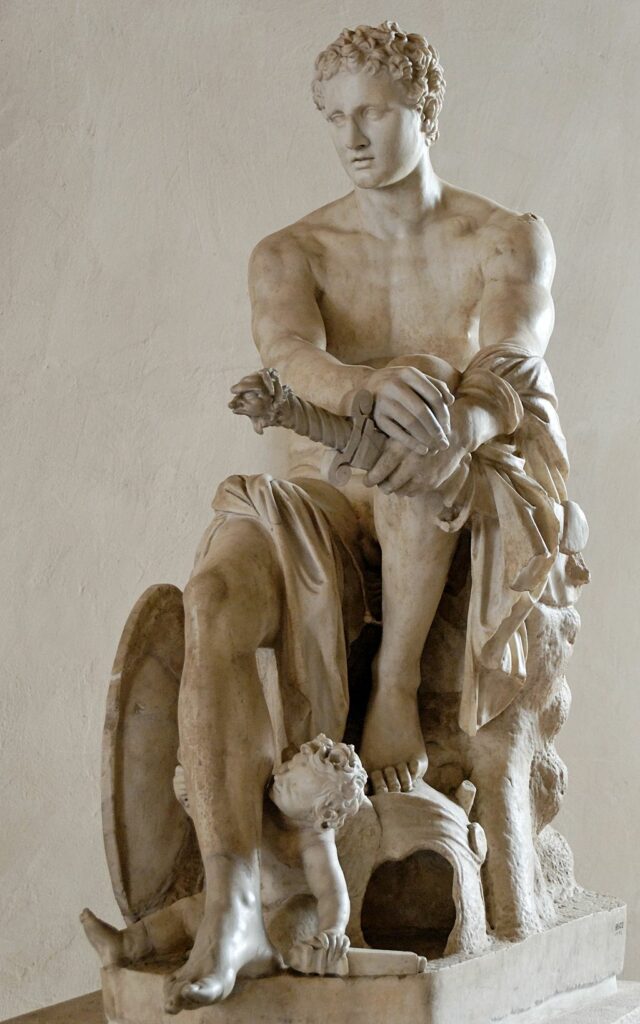
Aphrodite, enraged due to Ares’s interference, battled him fiercely. In the end, Aphrodite won the battle, and Adonis was brought back to life, subsequently becoming her lover. After this faceoff, Ares was banished from Olympus and sent to the underworld.
Despite his reputation as a god of war, Ares was also associated with protecting young men and was sometimes invoked in oaths and promises of loyalty. He was also regarded as a symbol of masculine energy.
Hephaestus
Hephaestus was the ancient Greek deity of fire, stone masonry, sculpture, and metallurgy. Unlike most of his siblings, Hephaestus was a legitimate child of Zeus, sired by the goddess Hera. Unfortunately, he was born lame, and the gods, by virtue of who they were — lofty, arrogant, disdainful — banished him from Mount Olympus due to his deformity.
The diligent Hephaestus didn’t allow his deformity to define him and went on to make a name amongst gods and men. He was known for his skillful craftsmanship and was often referred to as the “Smith God” or the “God of Technology.” He was the only god with a forge at his disposal, and he used it to create powerful weapons and armor for the gods.
Hephaestus was responsible for crafting many legendary armaments found across Greek mythology. He crafted the famous shield of Achilles, the bow and arrows of Artemis, and the breastplate of Heracles.
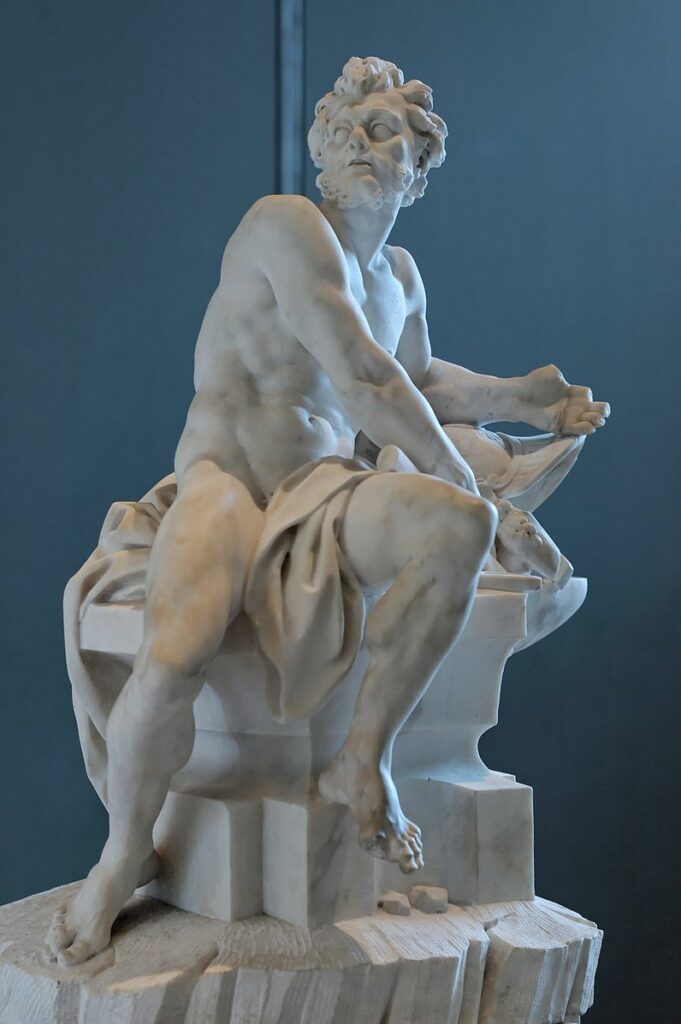
Despite his deformity, Hephaestus was a beloved god. He was kind, gentle, and wise and was often sought out for his wisdom and knowledge. He was often portrayed as the peacekeeper between quarrelsome gods and goddesses.
Hephaestus was married to the goddess of love, Aphrodite, but their marriage was not happy. He caught her cheating on him with Ares, the god of war. Her betrayal so hurt him that he built a golden throne with invisible chains and placed her on it. He then revealed her affair to the other gods and goddesses, humiliating her.
The god of blacksmiths was also the father of Erichthonius, the legendary king of Athens. He was honored and worshipped by the Athenians and had a temple built in his honor in the city.
Hephaestus was eventually welcomed back to Mount Olympus and became highly respected by the other gods and goddesses.
Hercules
Unlike the other sons of Zeus, Hercules wasn’t born a god. In fact, he never became a god. He was the result of another one of Zeus’ extramarital affairs, only this time; it was with a mortal woman, Alcmene. Hercules was resultantly a demigod — half god, half-mortal. Despite his semi-divinity, his feats do not lag behind those of his divine brothers and sisters.
In Greek mythology, the demigod Hercules is famous for his strength and many far-ranging adventures. Hercules showed these attributes even as a child, strangling two snakes that Zeus’s envious wife Hera had dispatched to his cradle.
The most well-known story of Hercules is his Twelve Labors, a series of nearly impossible tasks assigned to him as punishment for killing his family in a fit of madness.
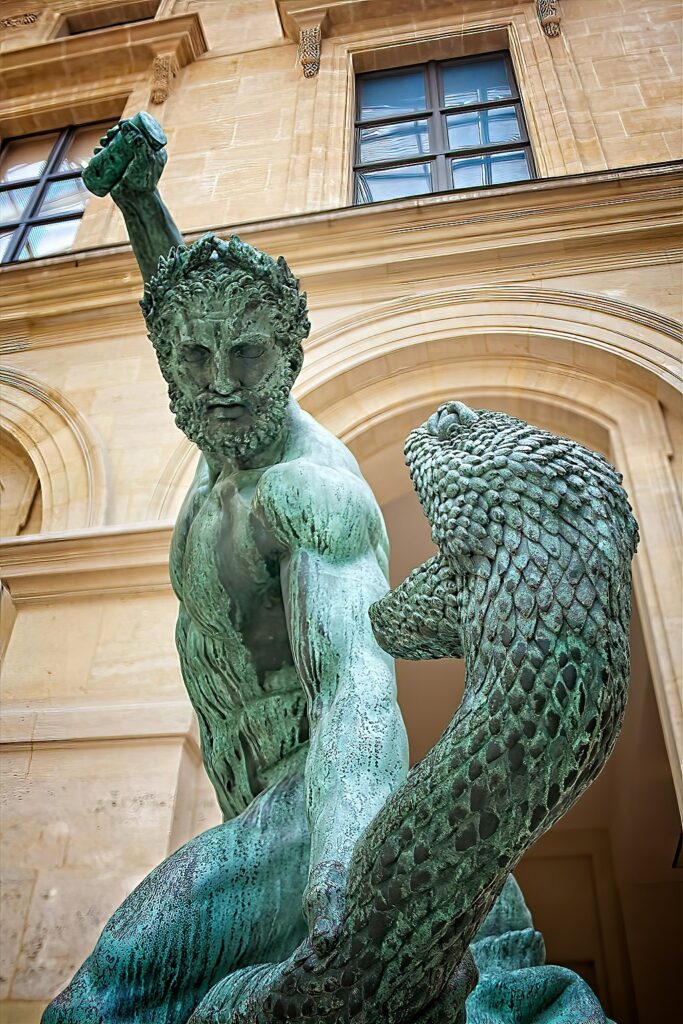
For example, he had to clean out the Augean stables, which housed thousands of cattle and had gone years without being cleaned. He had to capture the Cretan bull. He had to bring back the golden apples of the Hesperides, and he had to capture and bring back Cerberus, the three-headed dog that guarded the entrance to the underworld.
Hercules was also known for his many romantic adventures in both the mortal and divine realms. He married princess Megara and fathered several children. He was also involved with the goddesses Hera and Hebe.
Hercules is remembered as a great hero and a symbol of strength and courage. He is frequently depicted in art and literature and is a popular character in contemporary movies and television shows.
Perseus
Perseus, just like Hercules, was a demigod. He was born from Zeus’ affair with the princess of Argos, Danae. As the demigod who killed Medusa and wielded her severed head as a weapon, Perseus is famous and legendary among mythological figures.
However, Perseus wasn’t always the legendary heroic figure who doesn’t pale in comparison to other gods of the Greek pantheon. This was in part due to the challenging childhood he had. The thing is, Zeus’ affair with Perseus’ mother wasn’t as simple as his other infamous escapades. It was more complicated, more sinister even.
Before Zeus, Perseus’ mother, princess Danae had been under house arrest, locked away by her father, King Acrisius, to prevent a prophesied tragedy that dictated that Danae’s child would take his life. There was no possibility of her becoming pregnant if she was locked up.
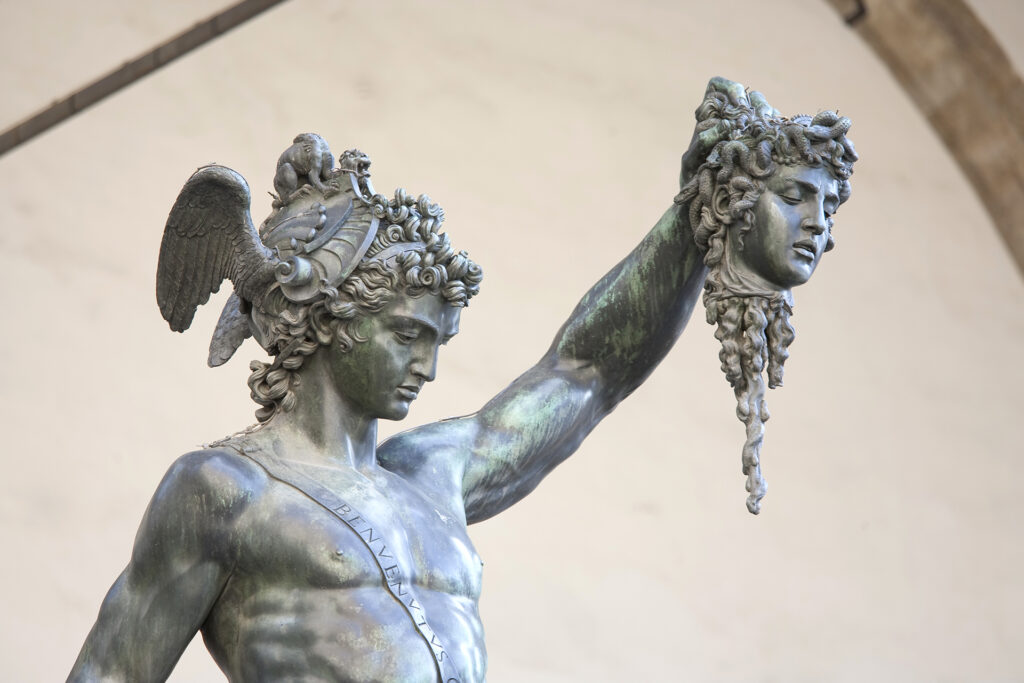
Unfortunately or fortunately, depending on whose perspective we’re looking at, Zeus was able to enter Danae’s cell as a golden rainstorm and successfully impregnated the princess. She then gave birth to Perseus. Perseus was subsequently sent away as an infant by King Acrisius, which was the next best thing considering he failed in preventing his birth, by extension, the prophecy.
A fisherman, Dictys, and his wife raised Perseus. When Perseus had grown into a young man, he set out to prove himself by doing great deeds.
He was sent on a quest by King Polydectes to kill the Gorgon Medusa, whose gaze could turn any living thing to stone. Perseus could accomplish this task with the help of Athena and Hermes, who gave him wings and a shield.
Perseus could see Medusa without looking directly at her using the shield as a mirror. He used the winged sandals to fly close to Medusa, and with the help of Hermes’ sickle, he cut off her head.
He took Medusa’s head back to King Polydectes as proof of his accomplishment, and when the King tried to use Medusa’s head against him, Perseus used it to turn him to stone.
Perseus went on to have many other adventures, including saving Andromeda from a sea monster and marrying her. He was eventually reunited with his mother and was crowned king of the island of Seriphos. He was also worshiped as a hero after his death.

